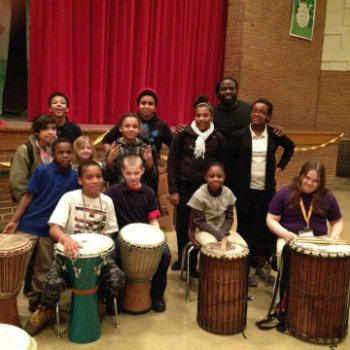 Learning to play a musical instrument can be a rewarding experience for a child that offers numerous benefits. Learning the intricacies of playing an instrument and reading music enhances self-esteem, improves concentration, teaches self-discipline and boosts brain power. In their ability to make music many children discover a lifetime of fun and pleasure.
Learning to play a musical instrument can be a rewarding experience for a child that offers numerous benefits. Learning the intricacies of playing an instrument and reading music enhances self-esteem, improves concentration, teaches self-discipline and boosts brain power. In their ability to make music many children discover a lifetime of fun and pleasure.
It’s practicing -- or rather, memories of our own parent-child battles over practicing -- that make some parents reluctant to encourage their child to pick up an instrument.
Toddler Drum Beats
It is often the parent’s approach and expectations that create the sour notes in the musical instrument experience. It is best to put your Carnegie Hall dreams aside and emphasize the enjoyment music brings to life. Start by exposing your toddler to different types of music.
Play music in the car and at home. At Horizon Education Toddler Care programs, we regularly dance and sing and listen to music. Stock the toy chest with tot-size drums, cymbals, bells, tambourines, xylophone and whistles. Or create a homegrown symphony with pots and pans and some wooden spoons.
Preschool Experimentation
Children develop at their own rate, so let your child’s interest determine when to move to the next level. Taking a graduated approach to musical instrument introduction allows children to try different types of instruments with minimal financial investment on your part. Simple drums, elementary recorders and keyboards offer preschoolers affordable exposure to different instruments.
Ready, Set, Play!
Most children are ready for music lessons in elementary or middle school. On Parentdish, Liat Joshi provides excellent advice to parents’ questions about choosing a musical instrument, finding a good teacher, deciding whether to buy or rent an instrument, dealing with practicing and more. The article is worth reading if your budding prodigy is ready to make beautiful music!





